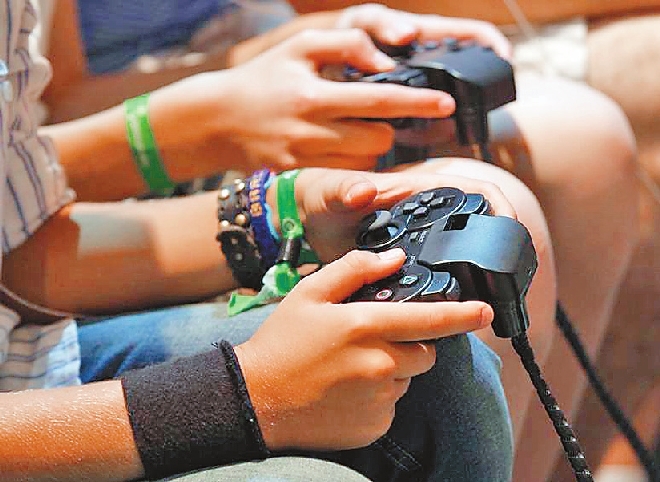
WATCHING as a video game ensnares their child, many a parent has grumbled about “digital heroin,” likening the flashing images to one of the world’s most addictive substances. Now, they may have backup: The World Health Organization (WHO) announced “gaming disorder” as a new mental health condition included in the 11th edition of its International Classification of Diseases, released Monday. “I’m not creating a precedent,” said Dr. Vladimir Poznyak, a member of WHO’s Department of Mental Health and Substance Abuse, which proposed the new diagnosis to WHO’s decision-making body, the World Health Assembly. Instead, he said, WHO has followed “the trends, the developments, which have taken place in populations and in the professional field.” However, not all psychologists agree that gaming disorder is worthy of inclusion in the International Classification of Diseases, known as the ICD. Characteristics of gaming disorder A diagnosis standard, the ICD defines the universe of diseases, disorders, injuries and other related health conditions. Researchers use it to count deaths, diseases, injuries and symptoms, and doctors and other medical practitioners use it to diagnose disease and other conditions. In many cases, health care companies and insurers use the ICD as a basis for reimbursement. Poznyak said the expectation is that the classification of gaming disorder means health professionals and systems will be more “alerted to the existence of this condition” while boosting the possibility that “people who suffer from these conditions can get appropriate help.” He said there are three major diagnostic features or characteristics of gaming disorder. “One is that the gaming behavior takes precedence over other activities to the extent that other activities are taken to the periphery,” he said. The second feature is “impaired control of these behaviors,” Poznyak said. “Even when the negative consequences occur, this behavior continues or escalates.” A diagnosis of gaming disorder, then, means that a “persistent or recurrent” behavior pattern of “sufficient severity” has emerged, according to the ICD. A third feature is that the condition leads to significant distress and impairment in personal, family, social, educational or occupational functioning, Poznyak said. Overall, the main characteristics are “very similar” to the diagnostic features of substance use disorders and gambling disorder, he said. Gambling disorder “is another category of clinical conditions which are not associated with a psychoactive substance use but at the same time being considered as addictive as addictions.” For a diagnosis to be made, the negative pattern of behavior must last at least 12 months. However, exceptions can be made when the other criteria are met and symptoms are severe enough. Most interventions or treatments for gaming disorder are “based on the principles and methods of cognitive behavioral therapy,” he said. He added that different types of support may also be provided, including “psychosocial interventions: social support, understanding of the conditions, family support.” ‘It’s a little bit premature’ Anthony Bean, a licensed psychologist and executive director at The Telos Project, a nonprofit mental health clinic in Fort Worth, Texas, counts himself as a member of the camp that opposes inclusion of gaming disorder in the ICD. “It’s a little bit premature to label this as a diagnosis,” Bean said. “I’m a clinician and a researcher, so I see people who play video games and believe themselves to be on the lines of addicted.” In his experience, they’re actually using gaming “more as a coping mechanism for either anxiety or depression.” Forthcoming research shows that gaming is a secondary diagnosis in coping with a primary diagnosis of anxiety and depression, Bean said, “When anxiety and depression is dealt with, the gaming goes down significantly.” The criteria being used by WHO to define gaming disorder in the ICD are “too broad,” he said, while the mild, moderate or severe versions of the disorder have not been adequately delineated. Diagnosing a patient with gaming disorder, then, would be based on the “very subjective experience of clinicians,” he said. For parents or other loving ones concerned about a much-too-avid gamer, the first step is becoming “as informed as possible,” recommended Bean, who is an author of a guidebook for clinicians wishing to work with gamers. “That’s by far the number one thing that comes in with parents who have concerns. They don’t even know what games are being played,” he said. The first question to ask, then, is “Why is this interesting to you?” Ultimately, Bean is not saying gaming disorder doesn’t exist, he just thinks “it’s not really a good idea to go forward with this [diagnosis]. ... It really opens the door for anything to be a sickness.” Absolutely anything — watching too much football on TV, doing too much research — could be considered behaviorally addictive if mental health professionals don’t insist on more rigorous study of the issue, Bean said. “Opening that door is a Pandora’s box.” (SD-Agencies) | 
